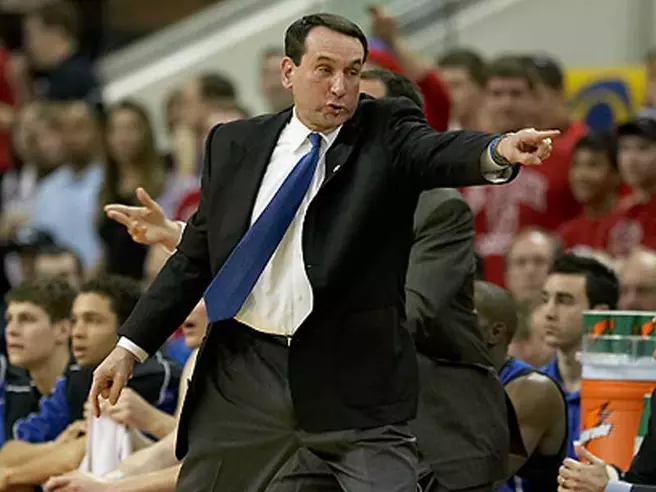Upcoming Event: Men's Basketball versus Lipscomb on December 16, 2025 at 6 p.m.











CHARLOTTE, N.C. (AP) ? Dean Smith and Mike Krzyzewski stood on opposite sides of college basketball's ultimate holy war for all those years, raging in that beautiful never-ending drama that has defined the Duke-North Carolina rivalry.
They have gone jaw to jaw, program to program, national championship to national championship.
They are of different generations but bound by a rare brilliance that intersected not just in Cameron Indoor Stadium and the Smith Center but across the basketball universe.
"I love Dean Smith," Krzyzewski, 61, said recently, sitting in a meeting room inside Duke's Cameron Indoor Stadium.
Smith, who is 77, has been retired from North Carolina for 11 years and will make a rare public appearance on Saturday when he's introduced at the ACC tournament with 11 other memorable figures from the league's basketball heritage.
The others might need the introduction.
Smith doesn't.
He'll probably walk gingerly on the knee he had replaced in December. There were complications after the surgery that kept him hospitalized for a time and it's been a difficult recovery. Smith, who regularly visits the office in the building named for him, insists he'll be on the golf course again soon.
Fans will see Smith and be reminded of all he meant not just to the ACC but to the game. Some will still see the coach who invented the Four Corners offense and was as disliked in some corners as he was loved in others. Some grudges never die.
Perhaps no one, however, will see him quite the way Krzyzewski. He admits he didn't always feel about Smith the way he now does.
"I'm not saying that (love) was there all the time," Krzyzewski said. "I probably understand him better than anyone in the history of the conference.
"There have been a lot of great coaches and (Smith) is one of them. For him to be there that long and go through that cycle, the changes of only one team making (the NCAA tournament), the integration of our league, he kinda touched the whole thing.
"He was successful with Michael Jordan and he was successful with teams that didn't have (James) Worthy and (Sam) Perkins. His standard of excellence matches anyone that ever coached the game. I admire that."
Krzyzewski said he has tried to emulate what Smith did at North Carolina. There are differences, obviously, but the goal was the same ? sustained excellence.
And to both it means more than winning games. It means shaping hearts and minds and lives. They both coached a game but they made it an education about more than Xs and Os. Like great professors, they inspired not just their players but those who were within range, to be a part of something bigger than themselves.
If you've seen them at the end of seasons, you've seen both of them with tears in their eyes and not just because they've won or lost.
"He was always players first," Krzyzewski said.
It's too bad, Krzyzewski said, that Smith essentially left the game when he retired. Smith has stayed connected to the North Carolina program, offering advice when asked and making the occasional appearance. He remains one of the game's great living resources.
"We should have tapped into him somehow. There isn't another resource like him," Krzyzewski says. "He's seen everything. He's felt it. He's competed against it. For the state of basketball, not just the ACC.
"He and (Bobby) Knight remember everything. Put a tape recorder down and just talk to them. Just listen to them. As much as he loves Carolina basketball, he loves basketball. He loves the game."
Krzyzewski and Smith had their wars. Krzyzewski said the league had a double standard when it came to Smith and how his team's games were officiated. They got into a shouting match during the 1989 ACC tournament final in Atlanta, salting an already vicious game.
Eventually, though, they became friends. As his career has unfolded, bringing national championships and all that comes with them, Krzyzewski came to appreciate Smith, not just for what he accomplished but how he accomplished it.
"You learn a lot from competing against him," Krzyzewski says. "Once you get over . . . wanting to beat him, you say, 'This guy is pretty damn good.'"